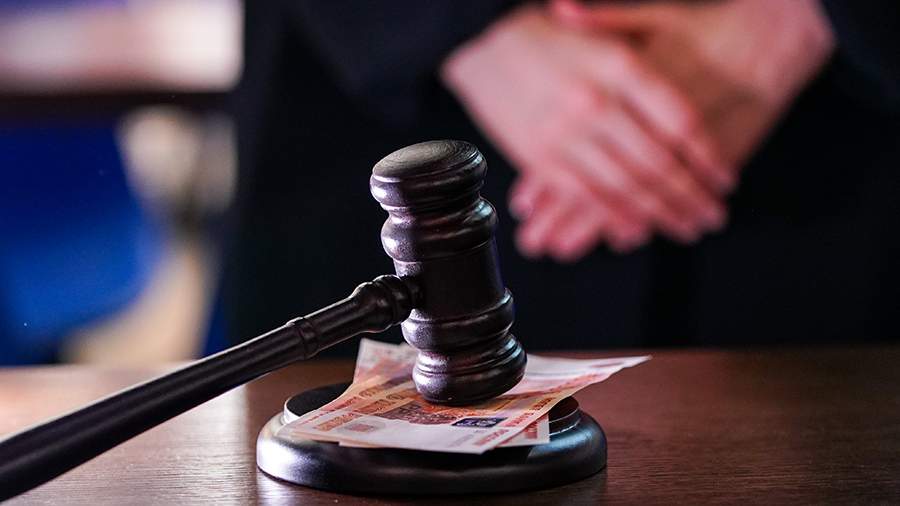Facebook Instagram, Facebook and Twitter ads will be fined for Russians.

Facebook Instagram and Facebook (social networks owned by Meta, whose activities are recognized as extremist and banned in the Russian Federation), as well as Twitter, will be banned from advertising on undesirable foreign information resources, and will be fined for violating this requirement. Such a bill will be adopted by the State Duma in the second and final reading on March 25. Izvestia was told about this by the leadership of the State Duma Security Committee. The first reading was held back in July 2024, but it has not been considered since.
"The measures proposed by the bill will be a logical continuation of the initiatives we have already taken. Today, a situation has emerged where, despite the ban on the activities of a number of undesirable or banned foreign organizations in Russia, including social networks, advertisements continue to be placed on them," Anatoly Vyborny, deputy chairman of the security Committee, explained to Izvestia.
According to him, according to media reports, its value has even increased, as have the earnings of the bloggers who publish it.
"Along with them, the owners of social networks unfriendly to Russia, who incite violence, earn money from advertising...> hostility towards our country and its citizens <...>. We must stop this," the deputy said.
According to him, the committee recommended that the bill be adopted in final reading next week.
The document introduces responsibility for advertising distributors. In particular, an amendment is being introduced to Article 38 ("Liability for violation of the legislation of the Russian Federation on advertising") the law "On Advertising", to which is added the norm on the inadmissibility of advertising on prohibited information resources.
Based on the norms of the Administrative Code, which impose liability for non-compliance, individuals will now face a fine of up to 2.5 thousand rubles for placing such advertising; officials up to 20 thousand rubles; legal entities up to 500 thousand rubles.
The bill was passed in the first reading on July 23 last year, but has not been considered since. The State Duma informed Izvestia that the new rules were supported and agreed with the Ministry of Economic Development, the Ministry of Finance, the Ministry of Finance and the Federal Antimonopoly Service.
The Association of Bloggers and Agencies (ABA) told Izvestia that the association's amendments to the bill were taken into account by the deputies. They clarified that they envisage the entry into force of the provisions of the draft law six months after its signing by the President of Russia. Based on the amendments that Izvestia has, it is planned that the new rules will come into force on September 1 this year.
At the same time, representatives of the bloggers association expressed concerns that the market would not have time to adapt to the new realities: it was important to put their contracts with advertisers in order.
Many Russian bloggers and influencers who make money from advertising through these platforms will face serious financial difficulties, Yaroslav Meshalkin, managing partner of the Heads'made digital communications agency, told Izvestia.
"For some, this may even be a reason to leave the market or look for alternative sources of income. Perhaps some content makers will switch to Russian platforms (for example, VK, Rutube, Zen), which may stimulate the development of these services," the expert explained.
He also noted that advertisers who focused on foreign platforms would be forced to reallocate budgets. This will lead to an increase in demand for advertising in Russian social networks and media, although the comparative effectiveness of such advertising has yet to be assessed, Yaroslav Meshalkin emphasized.
"Prudent content producers partially rebuilt themselves after the ban on Western social networks in Russia, the new ban, which is likely to be adopted, will simply be the last nail in the coffin of those who have not yet managed, or have not been able, to transfer their audience to alternative platforms. At the same time, this step on the part of the authorities is quite logical and consistent. Questions were raised just when Rospotrebnadzor, for example, explained how to label ads on banned social networks, everyone had a dissonance: social networks seem to be banned, but you can advertise on them," says Kristina Petrova, founder of the PR Perfect communications agency.
On March 19, it became known that State Duma deputies from United Russia had prepared a bill with amendments to the Administrative Code, according to which Russia wants to impose fines of up to 7 million rubles for advertising illegal online casinos. In addition, it is proposed to prescribe a separate penalty for violating existing requirements for such advertising. The reason is the increase in patients diagnosed with "pathological gambling addiction." Currently, in Russia there is only general liability for violating the law on advertising, but there are no fines for gambling advertising.
Переведено сервисом «Яндекс Переводчик»

